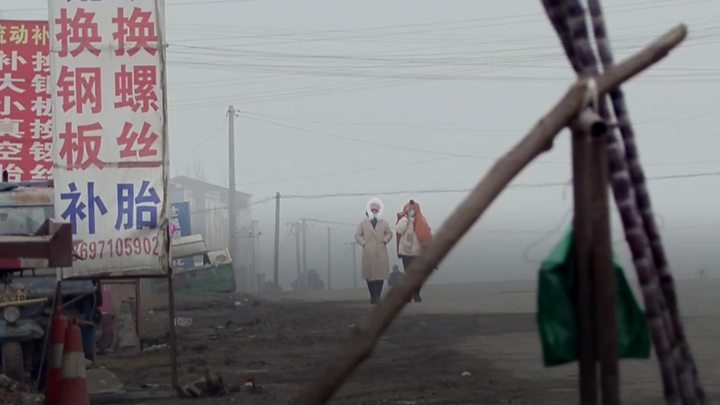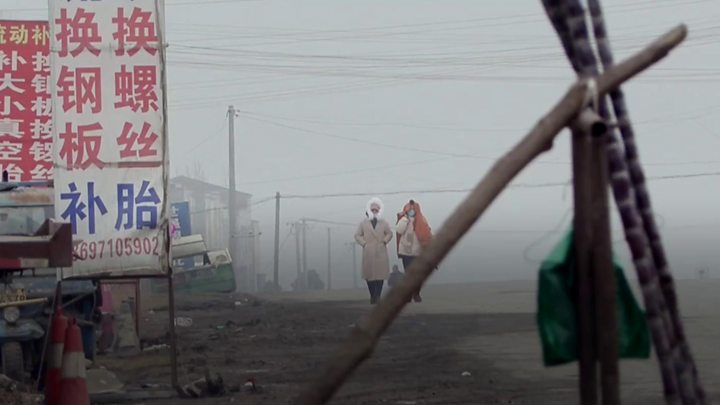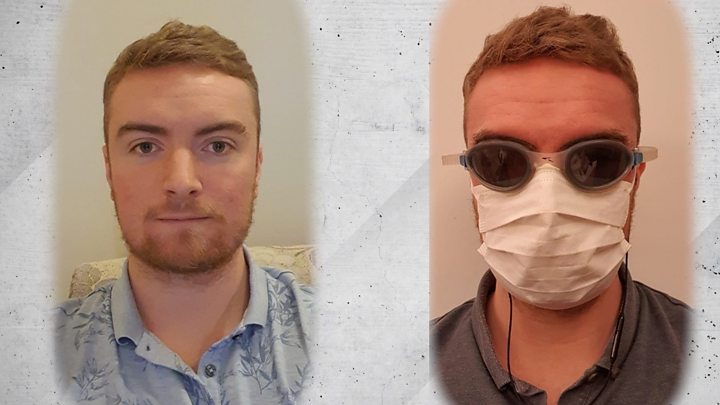Coronavirus: Death toll rises to 81 as China extends holiday
The new year holiday has been extended by three days, in an attempt to contain the outbreak. …


Media playback is unsupported on your device
The number of people killed in China by the coronavirus has risen to 81, with almost 3,000 confirmed ill.
The national new year holiday has been extended by three days to Sunday, in an attempt to contain the spread.
On Monday, Chinese Premier Li Keqiang visited Wuhan, the capital of Hubei province and centre of the outbreak.
The number of deaths in Hubei province has climbed from 56 to 76, with five deaths elsewhere.
Wuhan is in lockdown and several other cities have imposed travel bans.
In Shanghai, the government has stopped businesses from returning to work until 10 February.
The ban applies to all companies apart from utilities, medical firms, medical suppliers, and supermarkets.
Meanwhile, the director-general of the World Health Organization, Tedros Adhanom Ghebreyesus, is in Beijing to discuss the outbreak with the Chinese government and health experts.
EPA
The BBC’s Robin Brant in Shanghai says extending the main holiday of the year is a highly unusual move.
But after the pre-new year travel surge, the prospect of half a billion people getting back on trains, planes and buses and criss-crossing the country again is the last thing the government wants, he adds.
At least 44 cases have been confirmed abroad, including in Thailand, the United States, and Australia.
There have been no deaths outside China.
The coronavirus causes severe acute respiratory infection and there is no specific cure or vaccine.
Most of the deaths have been of elderly people or those with pre-existing respiratory problems.
What is happening in Wuhan?
Travel from the city, home to 11 million people, has been severely restricted and non-essential vehicles have been banned from the roads.
At the Hubei border, workers are checking people’s temperatures before allowing them into the province.
The province has suspended emigration services, meaning Chinese citizens have been unable to get new visas or passports.
The local government in Wuhan said no-one from the city had left China in the past four days. Some 4,096 tourists from Wuhan are still out of the country.
The emergency has overwhelmed Wuhan’s hospitals. More than half a million medical staff have joined prevention, control and treatment operations in the province.
Two new makeshift hospitals are being built in the city and factories are rushing to produce masks and protective clothing.
On Monday, Premier Li inspected the ongoing efforts, and spoke to patients and medical staff, a government statement said.
The city’s mayor Zhou Xianwang said the number of cases would continue to rise, and warned that around five million new year travellers left the city before the lockdown.
What is the situation in China?
New year celebrations were scaled back and four major cities – Beijing, Shanghai, Xian and Tianjin – have banned long-distance buses.
Extending the new year holiday until Sunday means schools and official institutions will remain closed for the rest of this week.
Beijing has closed the Forbidden City for tourists, as well as a section of the Great Wall.

Media playback is unsupported on your device
In Guangdong province, several cities have made face masks mandatory in public. Both Disney parks in Hong Kong and Shanghai have closed.
Hong Kong, which has eight confirmed cases, has declared a city-wide emergency, with schools closed until 17 February.
Over the weekend, Chinese officials warned the virus was able to spread during its incubation period, making it harder to contain the illness.
In humans, the incubation period – during which a person has the disease, but no symptoms – ranges from between one and 14 days, officials believe.
What is the situation internationally?
According to the World Health Organization and national authorities, there have been at least 44 confirmed cases outside China.
- Eight cases: Thailand
- Five: USA, Australia
- Four: Singapore, Taiwan, Malaysia, South Korea
- Three: France, Japan
- Two: Vietnam
- One: Nepal, Canada
Almost all had recently been to Wuhan or had been in close contact with someone who had.
Where did the virus emerge?
The virus is thought to have emerged from illegally traded wildlife at the Huanan seafood market in Wuhan.
Authorities have since temporarily banned the sale of all wildlife in China. The virus itself is a new, or “novel” coronavirus – a family that normally affects animals.
Another variant, Sars, killed 774 people out of 8,098 reported cases during a major outbreak in 2003, which also originated in China.
‘As long as we leave, they don’t mind’
Stephen McDonell, BBC News, Hubei / Henan
Police and officials in the impact zone in Hubei and Henan provinces are now very keen to move us on wherever we arrive.
They don’t seem to mind where we go – as long as we leave their towns.
We explain that the world wants to see the important, tiring work they’re doing to combat the virus. But they’re not interested. It could be that they’re worried that our presence might imply to some that their patch is not handling this emergency well enough.
One police officer at the entrance to a small town in Henan said to me: “We don’t have a problem here any more so there’s no need for you to be here.”
He said this at a checking station as cars were being pulled up behind him. Medical staff covered head to toe in protective clothing were then screening every passenger.
They also checked the inside of all vehicles. I’m not sure what they were looking for – but it certainly didn’t look like business as usual.
What can people do to stay safe?
In Beijing, subway carriages are being disinfected once a day, while escalators and ticket machines are being disinfected three times a day.
The city of Tianjin, near Beijing, has asked taxi drivers to disinfect vehicles after every passenger.
For individuals, the World Health Organization (WHO) advises its “standard recommendations” focusing on “hand and respiratory hygiene”.
That essentially means washing hands or using disinfectants, and covering one’s mouth and nose when coughing or sneezing.
The advice also suggests avoiding contact with live animals in places where there have been coronavirus cases, and not to eat raw or uncooked animal products.
Learn more about the new virus
Are you in China? Have you been affected by the lockdown in various cities? Email haveyoursay@bbc.co.uk.
Please include a contact number if you are willing to speak to a BBC journalist. You can also contact us in the following ways:




